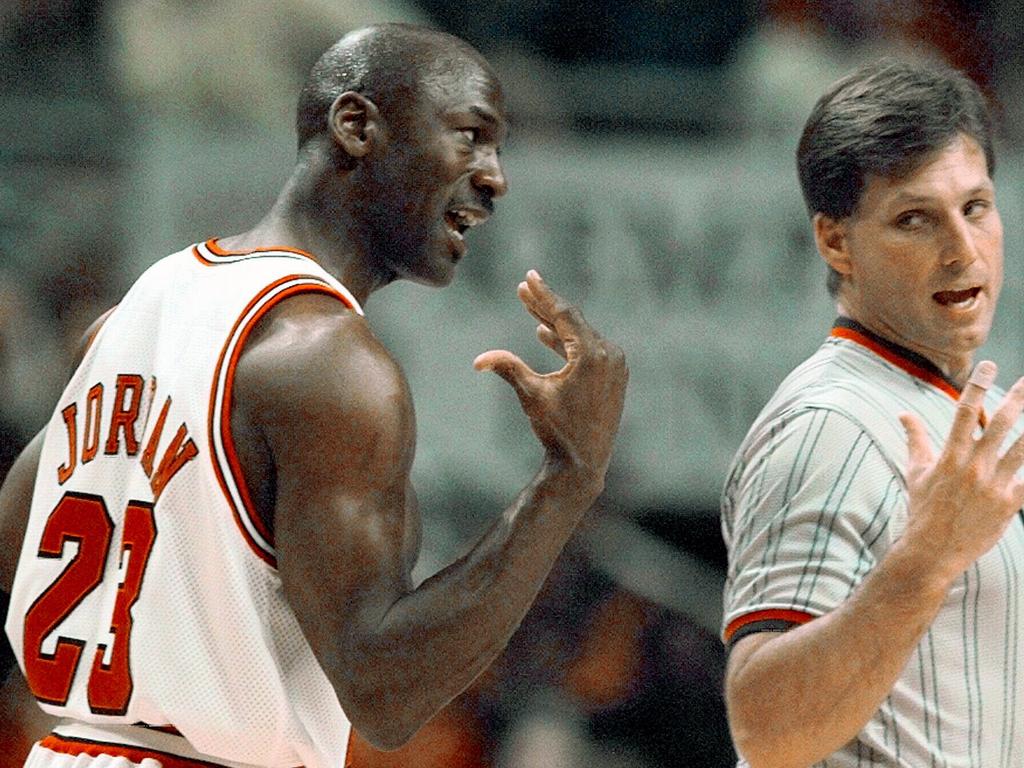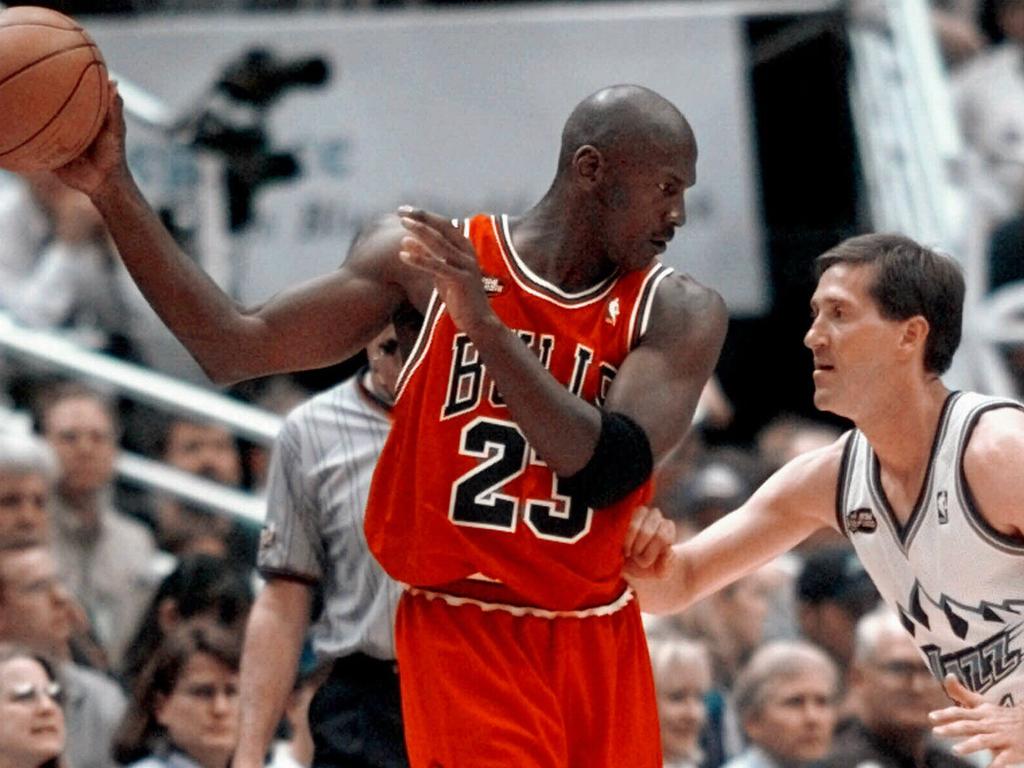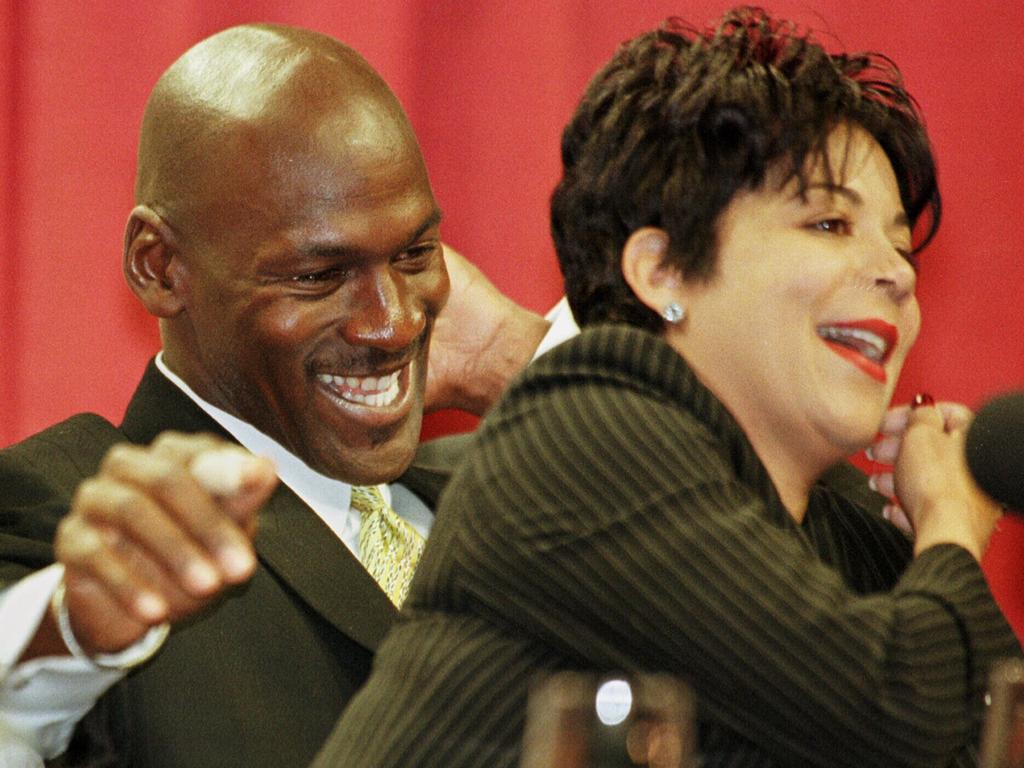Why you don’t want to Be Like Mike
The Last Dance reminded us Michael Jordan is the greatest basketballer ever, but also highlighted a much darker aspect of the NBA icon.

Maybe you don’t want to Be Like Mike.
The hugely successful Gatorade marketing campaign of the early 1990s became famous for its tagline encouraging people to emulate Michael Jordan and was another stepping stone for the NBA superstar on his journey towards a different stratosphere of fame any athlete had ever known.
But now the dust has settled on ESPN’s 10-part documentary The Last Dance, which followed Jordan and the all-conquering Chicago Bulls of the 90s, some viewers have been left pondering the dark side of the man who was as much a walking brand as a basketballer.
In the Why Is This Happening podcast, American TV host and diehard Bulls fan Chris Hayes, former Deadspin journalist David Roth and writer Joel Anderson dissect their most confronting takeaways from the documentary that has captivated the world during lockdown.
First and foremost is their bewilderment at why Jordan allowed himself to come off like such a bully given his production company was actively involved in the making of the documentary.
As far as pure basketball goes, The Last Dance has reminded us all just how much better Jordan was than everyone else. It’s a reaffirmation that will serve him well in the never-ending GOAT debate as LeBron James nears the end of his career.
But as a person, Jordan only adds to the perception he was a bully who intimidated and berated his teammates because he was driven more than anything by a ferocious desire to win. The Last Dance shows Jordan regularly make fun of teammates like Scott Burrell, highlights his fight at training with Steve Kerr and gives plenty of airtime to bad blood with rivals that still festers more than 20 years on.
RELATED: Jordan teaches cocky rookie a lesson
RELATED: MJ ‘was a Warrior for 48 hours’
Anderson, who wrote an in-depth piece for Slate last week saying the documentary told him what he already knew, that “Jordan sincerely didn’t give a s**t about anything but the scoreboard”, said it was strange to see the five-time NBA MVP, now aged 57, justify his abusive behaviour rather than try and change that portrait of himself.
“I think Michael Jordan is very delusional about himself and the way he relates to other people,” Anderson said. “That’s the only way I can rationalise why he was comfortable with this portrayal of himself.
“He believes that being cruel and being abusive to people, is leadership. That’s what he thinks and he doesn’t have a problem with you knowing that.
“He has a problem with people thinking he’s mean because of doing that but he doesn’t actually think that there’s anything wrong.”
Hayes added: “You’re aware at some level this is how Michael Jordan wants to present himself, and yet he does not come off well.
“This is the way you chose to present yourself? Because you come off as a real f***ing psycho.”
JUSTIFYING JORDAN THE ‘TYRANT’

In one episode, Jordan says he’s aware some might view him as a “tyrant” when they see the behind-the-scenes footage, but he doesn’t care because that’s what it took to win.
Jordan the tyrant was first exposed in Sam Smith’s 1992 book The Jordan Rules. Previously viewed as the perfect pin-up boy, the book lifted the lid on just how poorly Jordan treated his teammates.
What Roth, Hayes and Anderson all find odd about The Last Dance is Jordan doesn’t try and defend himself against those allegations, but instead justifies them by maintaining everyone else had to meet his high standards if the Bulls wanted silverware.
The biggest problem Jordan has with Smith’s book is not the allegations contained within it, but that someone on his team would leak those details to a reporter. Most would be upset at being painted in such a negative light but Jordan is, to this day, more concerned with who let that truth come out.
His Airness is still filthy about the leaks and points the finger at ex-teammate Horace Grant who, for what it’s worth, denied betraying the sanctity of the locker room.
“In the film, the whole treatment of that (book) is given over to who snitched to the reporter. The only person that could care about that as the salient point of The Jordan Rules is Michael Jordan,” Roth, who wrote recaps of each episode of The Last Dance for website Vulture, said.
SETTLING OLD SCORES TAKES CENTRE STAGE

Plenty of current-day Jordan’s time in front of the camera in The Last Dance is devoted to settling old scores. He doubles down in his spat with Detroit Pistons star Isiah Thomas, criticises former Chicago general manager Jerry Krause for tearing the Bulls dynasty apart and laughs off claims from Seattle Supersonics guard Gary Payton his defence tired the GOAT out during the 1996 NBA Finals.
As pointed out in Why Is This Happening, at times it was reminiscent of Jordan’s 2009 Hall of Fame induction speech, where he spent many cringe-worthy minutes dragging up old feuds and bitter disputes even though he had already made it to the top.
Hayes likened it to trash-talking your year 10 girlfriend on your wedding day, while Roth says Jordan’s constant one-upmanship in The Last Dance is a “strange thing to see from somebody who has, outwardly, gotten all of the things that he wanted so much”.
RELATED: Jordan’s ‘train wreck’ Hall of Fame speech
It’s nearly two decades since Jordan retired for good but he is still desperate to prove himself.
“There are moments, tiny little moments of self-awareness but generally what you’re getting is a self-justifying egomaniac explain to you why this single-minded sociopathic pursuit of excellence was necessary,” Hayes said.
FAMILY SNUB RAISES QUESTIONS

Another major point discussed in the podcast is how invisible Jordan’s wife and kids are in the documentary. His mum speaks and his relationship with his dad is explored, but Jordan’s two sons and daughter only speak for a few seconds in the final episode, while neither his wife nor ex-wife appear at all.
Perhaps they didn’t want to appear in the documentary, or maybe they were cut in the editing booth, but it’s still a little odd there’s no mention given to the role Jordan’s wife and kids played as he developed into the greatest basketballer the world has ever seen.
“It’s amazing given the concerns … he had that people were going to think he was mean and a bad person, but he never took measures to soften,” Anderson said.
“He decided that (talking about his wife and kids) wasn’t important, that is was more important to settle his grudge with Jerry Krause.”
What we see in The Last Dance is what NBA fans saw on the court for more than 15 years — a man whose desire to win trumped all else. And for many, that’s exactly why they love him. The documentary may well endear him even more to supporters who idolised his pursuit of excellence and scary single-minded competitive streak.
But as Jordan defends himself for pushing everyone else to the limit, no matter the damage done to his relationships, Hayes wonders if it came at too great a cost.
“My take away from this was you don’t actually want to Be Like Mike,” Hayes said.
“Is this actually what it takes? And if it is what it takes, do you actually want to Be Like Mike?
“I was like, ‘No I do not’.”




